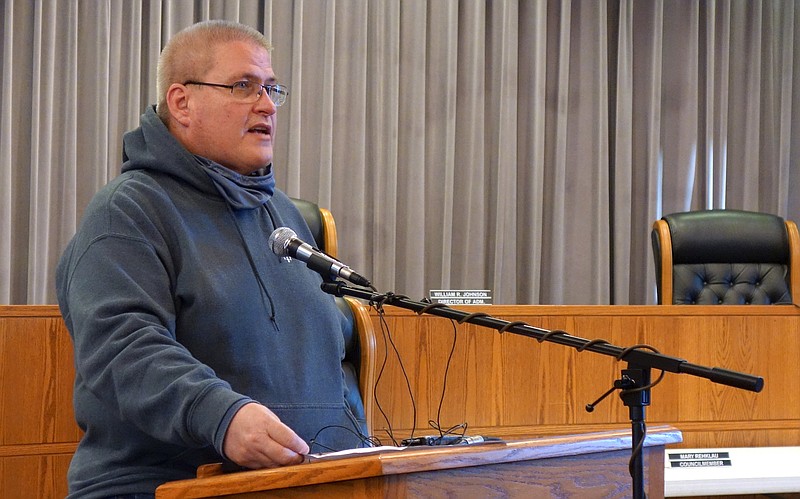Cranking your thermostat down instead of up could mean the difference between sky-high and steady gas bills, according to the City of Fulton.
Like other utility providers throughout the Midwest, the City of Fulton is facing a spike in natural gas prices driven by frigid temperatures down south.
"Frozen natural gas wells in Oklahoma and Texas are causing a shortage of available natural gas, leading to an increase of as much as 100 times the typical purchase price," the City of Fulton stated in a Friday press release.
The City of Fulton pre-buys 75 percent of its natural gas, at a fixed rate. The remaining 25 percent goes to to the open market, and until now, Fulton had been paying $2.50-$3 per decatherm. Usage varies based but is higher during cold weather; for example, Fulton used 104,000 decatherms of gas in December 2019.
Early Friday afternoon, the city received an alarming warning from its natural gas supplier, Interstate Municipal Gas Association. According to Fulton Director of Administration Bill Johnson, they were informed that due to the shortage, the price of natural gas is expected to spike to $250 -$400 per decatherm - a hundredfold increase or more.
The final price will be set when trading closes tonight. It'll take effect today and remain in place until trading reopens Tuesday.
"What this means for the City of Fulton - and this is just on the 25 percent we let go to the market - it means that it could be an extra $700,000 to $900,000 a day for each of the next four days," Johnson said during a press conference Friday.
According to the city, Fulton's natural gas customers won't see an immediate increase in utility bills.
"The city has reserves in its natural gas fund to cover unexpected costs," Public Information Officer Darin Wernig said. "However, costs could eventually be passed on to consumers if prices remain high."
Johnson said there is about $5 million in the natural gas fund, and the city plans to withdraw up to $3.6 million "in a worst-case scenario." After that, they'll look at other available city money and - potentially - passing the cost on to customers. But that may not become necessary if temperatures increase and thaw the wells before the fund runs out.
Story continues below related video.
Turn down the heat
The city encouraged residents to reduce natural gas usage until at least Tuesday.
"We are asking customers to conserve natural gas if at all possible," Johnson said. "Turn the thermostats down a little bit. When you're paying 100 times what you normally pay, every little bit helps."
He acknowledged the extreme cold weather, and said he doesn't want residents to turn their thermostats so low they risk cold-related injuries or frozen pipes.
Johnson said he contacted Backer's Potato Chip Company - which heats its vats of frying oil with natural gas - and learned they weren't planning to cook potato chips this week. The city also asked Fulton Public Schools and the city's two colleges to turn down the heat in their buildings over the weekend.
The City of Fulton has reached out to U.S. Rep. Blaine Luetkemeyer, who represents Missouri's 3rd Congressional District, the Missouri governor's office and the State Emergency Management Agency about the situation. Johnson said the city's asking if there's anything the Department of Energy or other federal authorities can do to intervene and offset the skyrocketing cost of natural gas.
"We feel the need to get the word out," Johnson said. "This is going to effect everybody across the market. I believe this to be almost a national emergency."
Johnson said this is the first time in his 25 years working in city government he's witnessed such a situation.
Johnson and other city leaders have also reached out to other area cities that act as utility providers to see how they're handling the pinch.
"Things are really bad in some other towns," Johnson said.
Each city has a maximum amount of natural gas they're allowed to draw from their provider; if they pass that amount, they're penalized and must pay more per decatherm.
"I don't think we will go over our threshold," Johnson said. "Some towns, due to the extreme cold weather, think they'll blow over their limit."
Callaway County Presiding Commissioner Gary Jungermann said most natural gas used in the county is used in the cities - most county residents heat their homes with propane or electricity. However, a significant percentage of the natural gas used in the country goes toward producing electricity - Jungermann pointed out a spike in natural gas costs could eventually translate to increased electricity costs.
"It's all about supply and demand," he said.

